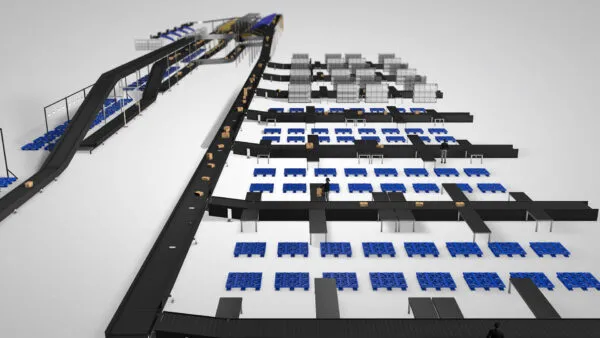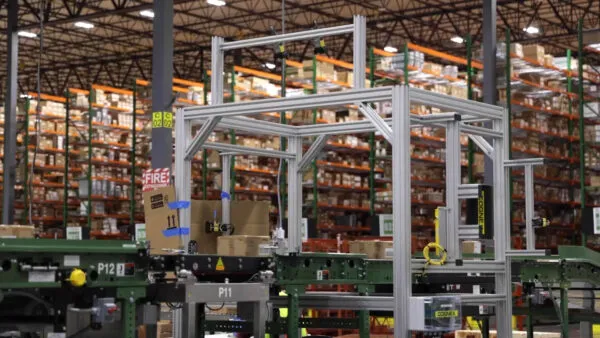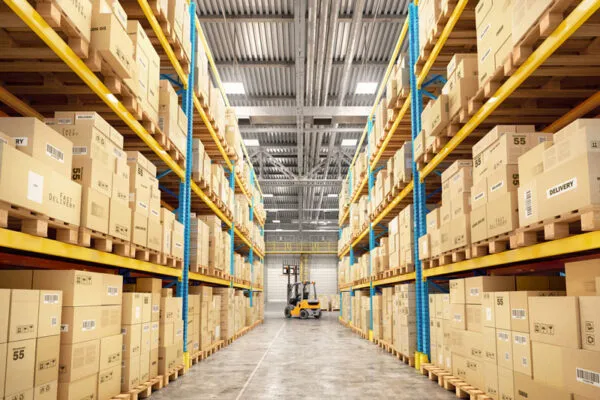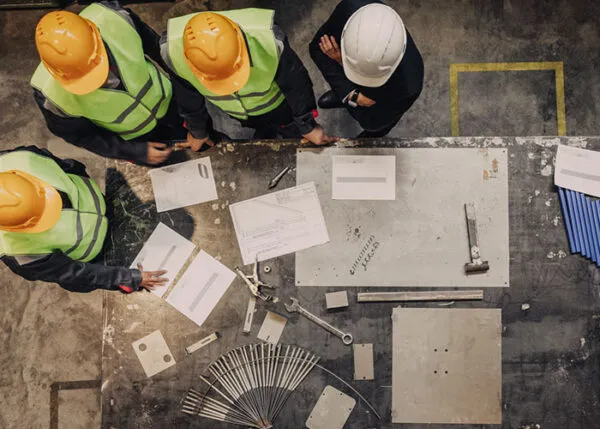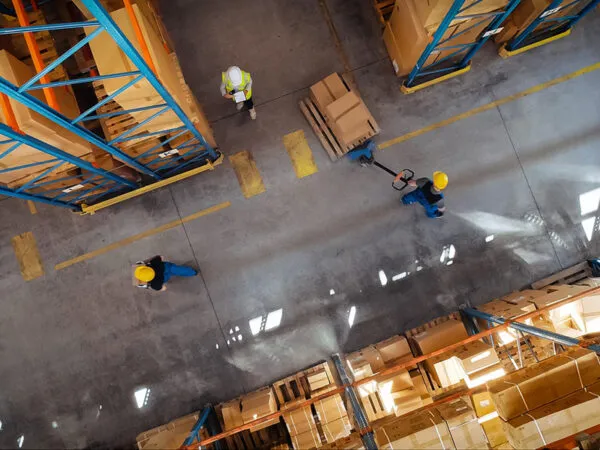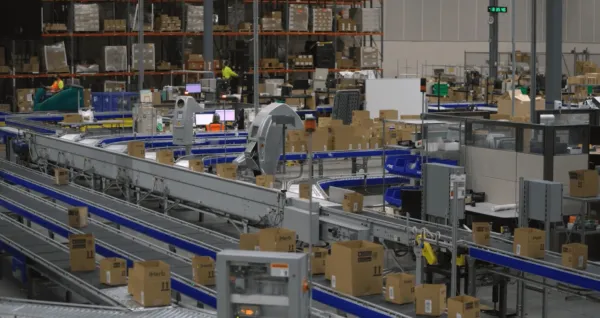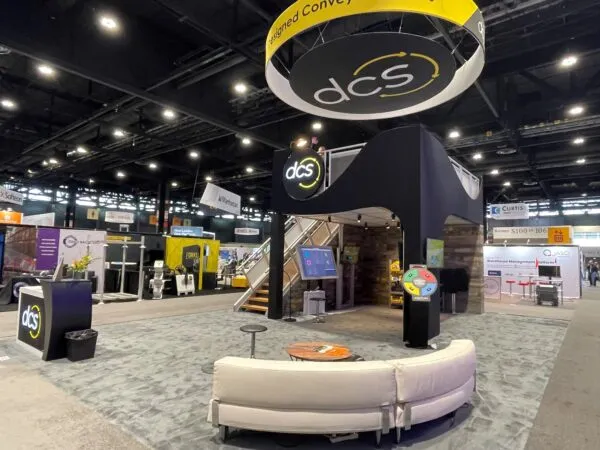The warehousing industry is changing. Fast. Once a novelty, automation has now become a necessity. Companies that aren’t yet on board, or are at least investigating how to adopt these technologies, are going to sink. This isn’t just about keeping up with the operation down the street; it’s about survival.
For years, many companies relied on spreadsheets and people power to manage their warehouses. But this approach simply can’t compete with the speed, accuracy, and efficiency of modern automation.
Today — as the costs of land, labor, and equipment are rising — customer expectations are skyrocketing. To stay competitive, warehouses need to maximize space, increase throughput, and minimize errors. Automation is essential to achieving all three.
Indeed, the benefits of automation are numerous. It can:
- Reduce costs: By optimizing labor, increasing storage density, and maximizing equipment utilization.
- Improve accuracy: By directing associates to select the right items and requiring verification, thereby minimizing human error.
- Increase efficiency: By streamlining processes, eliminating travel between picks, and increasing throughput.
- Enhance safety: By bringing products to people, reducing the risk of workplace accidents.
- Boost employee morale: By creating a more modern and efficient work environment preferred by associates.
For all these reasons, companies can’t afford to ignore automation any longer. Even small steps, like implementing basic scanning systems or artificial intelligence (AI)-powered tools, can make a significant difference.
Yet many operations aren’t sure what kind of automated solution to apply, or which processes the technology would improve the most. That’s where independent warehouse automation consultants can help.
Understanding Your Warehousing Automation Needs
To determine the optimal automated solution, a warehouse automation consultant will start with an assessment of a facility’s current operations. This includes interviewing personnel at all levels of the organization to identify what portions of the process work and what doesn’t. It also helps determine the company’s tolerance for change.
Warehouse automation consultants will likewise observe the environment, looking for cleanliness, organization, available workspace, and flow. Warehouses in disarray are often congested and chaotic. Instead of being full of stock, they’re full of stuff; that is, expired products, dunnage and other packaging waste, even the owner’s grandmother’s old furniture. Often, random items are hidden in various nooks and crannies throughout the facility.
Additionally, the consultant will ask the operation to provide as much data as possible — or any available. This includes inventory dimensions, volumes, order characteristics, throughput rates, costs, inbound and outbound shipments, and many other metrics and key performance indicators (KPIs). For many companies, data can be a significant stumbling block — especially if they haven’t been diligent about data collection.
Details about inventory will be gathered. The warehouse automation consultants will examine what is being handled and stored, and the specific nuances of the product mix. Certain items — notably products destined for human consumption, such as foods, beverages, and pharmaceuticals — require special handling processes, environments, and even security measures in some cases.
Combining the observations with data analytics helps a warehouse automation consultant identify the operation’s pain points and bottlenecks. Operations that haven’t been using historic data for forecasting, or don’t communicate with other departments (purchasing, finance, and sales, for example), frequently deal with unanticipated or unknown surprises. The consultant will solicit input from all these stakeholders in order to help the operation define its automation goals.
The consultant will also examine existing processes to determine if there are efficiencies to be gained through modifications or refinements prior to implementing automation. Because automating a bad process will not lead to operational improvements.
Likewise, the budget is a critical factor; not every operation can afford comprehensive, end-to-end, lights-out automation. But most will benefit from implementing some degree of automation to start, then adding more technologies in a phased plan as their processes evolve.
Based on all these factors, the consultant will make recommendations for the optimal automated solution.
Choosing the Right Automation Partner
Implementing the optimal degree and mix of automation can be complex, time-consuming, and expensive. That’s why it’s crucial to choose the right warehouse automation consulting partner. Look for one that checks the following boxes:
- Brings extensive warehouse automation consulting experience: A warehouse automation consultant should have a proven track record of successful warehouse operations management. They should also have a history of designing various automation projects in a prospective client’s industry. Among the key services provided by a consultant are assistance in assessing layout options to determine the one best suited for the facility; selection of equipment; development and implementation of process improvements; and comprehensive data integration. They should also provide customer case studies and testimonials detailing the successful outcomes of their previous projects.
- Has deep market and technology expertise: The consultants should understand the nuances of the operation’s market and its specific needs. Additionally, they should stay on top of the constantly evolving world of warehouse technology. This ensures an operation invests in the optimal solution that will deliver results for its current — and future — business needs.
- Offers independent, brand agnostic solutions: They should be able to design a system that deploys best-of-breed technologies to meet the specific needs of the client, regardless of the original equipment manufacturer (OEM). This ensures that the operation deploys the optimal solution to address its unique needs.
- Possesses strong data analytics capabilities: The warehouse automation consultants should be able to analyze the operation’s data and identify the best solutions for its challenges.
- Maintains strategic partnerships: The consultants should maintain solid relationships with automation suppliers who can provide ongoing training, support, and optimization services.
- Provides ongoing support for continued improvements: Warehouse automation isn’t a “set it and forget it” solution. It requires continuous review and optimization to deliver the best performance. Warehouse automation consultants can help assess a new automated system’s operation, identify areas for improvement, and recommend changes to maximize efficiency and minimize downtime. Long-term, they can also help adapt a system as the business evolves and new technologies become available
Waller and DCS: Leverage A Powerful Partnership
Waller & Associates, a subsidiary of DCS, offers a unique blend of experience and expertise. Our team of warehouse automation consultants combines decades of hands-on knowledge with cutting-edge data analytics and automation solutions.
Each member of the Waller & Associates team brings more than 30 years of experience in the industry and personally conducts each warehouse automation consulting project. We also offer a range of other consulting services, including operational assessments, supply chain risk mitigation reviews, and logistics network design evaluations.
Don’t get left behind. The time to embrace the future of warehousing — automation — is now. Connect with Waller & Associates today to learn how we can help you transform your warehouse and achieve your business goals.
